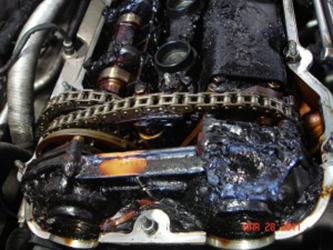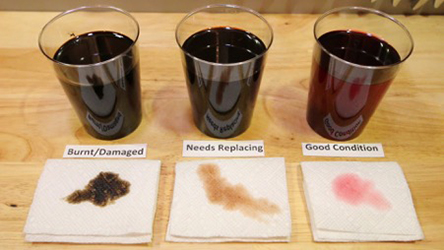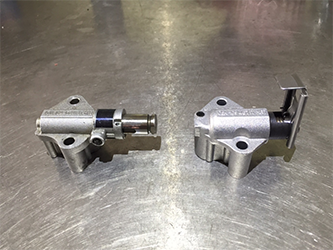One problem we are noticing more often with vehicles calling in for service is engine oil thickening or sludging. Usually this symptom is associated with vehicles that have travelled low kilometres and have not had an oil change for around 12 months, or have had the incorrect oil added to the engine. You may not be aware but your engine oil degrades as much by the length of time it sits in your engine as it does by the kilometres your vehicle has travelled. Continual short distance driving where the engine does not achieve normal operating temperature for a reasonable length of time is bad for your engine. Your engine oil becomes contaminated with particles of petrol or diesel, combustion byproducts and moisture due to condensation buildup in the engine. This results in the engine oil thickening as it suspends all these impurities.
If your vehicle is subject to regular open road running for at least 20 kilometres, the engine oil has time to rise and operate at normal temperature (around 100 degrees) and these contaminants can evaporate out of the lubrication system. Please note that if your engine oil is already thick and sludgy taking your vehicle for a long drive will not fix it. When the engine oil thickens it begins to leave deposits in the oil passages within the engine and they slowly become blocked up. The result is some of the internal engine parts become starved for oil and lubrication (a bit like the hardening of the arteries in a human) Oil sludging can lead to all sorts of problems if left unattended, such as increased fuel consumption, engine oil leaks, engine overheating and in the worst cases engine failure. The best way to avoid oil sludging is having your oil changed at regularly timed intervals.
European vehicles call for high grade fully synthetic oils to protect their engines, even so oil sludging becomes a problem in some vehicles due to the lengthy service schedule recommendations. Perhaps the climate in Europe is suitable for these lengthy intervals, in this climate however it is your best interest to call for an interim service at between 10,000 and 15,000 kilometres. This will protect your engine from oil sludging and costly repairs as a result.
 Oil sludge deposits in a BMW engine.
Oil sludge deposits in a BMW engine.




